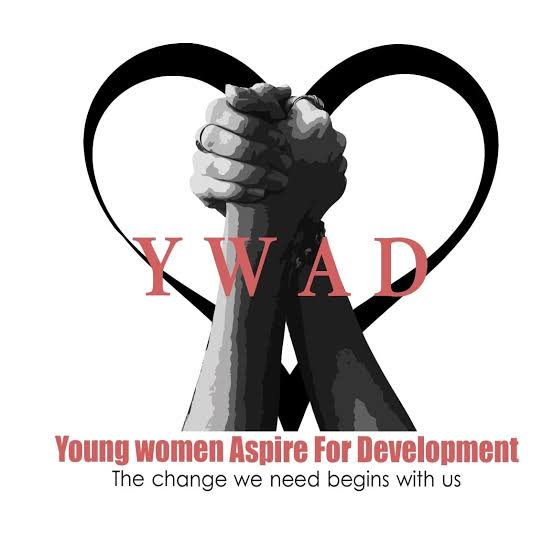About this project
Menstrual waste is currently one of the biggest environmental concerns in our community due to the raise of improper disposal of single-used menstrual products that contains 90% plastic taking hundred of years to decompose. These menstrual wastes end up in land fills and water systems contributing to waste accumulation, environment pollution and emit harmful green house emission when burnt affecting mankind and ecosystem. At the same time many girls and women from low-income families can’t afford menstrual products being costly forcing them to use unhealthy materials to manage their menses like old rags, papers, leaves giving them less protection and discomfort leading to school absenteeism, stigma and health risks.
This project addresses both challenges by empowering girls and women with skills to produce reusable menstrual pads from locally available materials. Through practical training workshops, participants learn sewing techniques, quality control, and hygiene standards enabling them to meet their personal needs and start small scale income generating business.
The project integrates three pillars;
- Skill Development. Hands on training in pad making and entrepreneurship.
- Menstrual Health Education. Promoting hygiene, confidence and breaking taboos.
- Climate action. Reducing plastic waste through sustainable products.
By linking menstrual health to environment sustainability, the initiative ensures no girl misses school because of her periods and no woman has to choose between dignity and the planets health
Goals and Objectives
The main gaol of the project is to address menstrual waste pollution and period poverty empowering girls and women with skills to make reusable pads from local available materials.
The primary goals include;
- Equip participants with practical skills to make long lasting, washable pads using locally available materials.
- Reduce the volume of non biodegradable to menstrual waste that contribute environmental pollution and climate change.
- Improve menstrual hygiene and restore dignity to women and girls.
- Enable beneficiaries to generate income through pad sales
Intended Beneficiaries
The project targets adolescents’ girls, teenager-mothers and women. They are chosen because they are vulnerable since they menstruate monthly and they are often affected by lack of affordable menstrual products leading to poor menstrual hygiene, school absenteeism, economic vulnerability and reliance on environmentally harmful disposable pads.
Its impact can be sustained through capacity building, local partnership and community engagement.
The project is community driven and highly adaptable. It can be replicated in other regions by collaborating with schools, women groups and local leaders to continue teaching pad making skills and on-going support. It can scale nationally transforming menstrual health while promoting the planet.
Expected result
Specific The project aims at empowering over 500 girls and women with skills to make reusable pads promoting sustainable menstrual hygiene management and reducing menstrual waste.
Measurable
- At least 500 girls and women will attend the program with a minimum of 70% completing the training
- Pre-and post-training assessment will be conducted to evaluate the participants knowledge and skills in making reusable pads. A target of at least 75% of participants should demonstrate improved skills and understanding
- Each participant will produce a finished reusable pad during the practical training
- A 40% waste reduction in the use of disposable pads among participants will be achieved, measured through pre and post project surveys
- A 60% increase in community awareness of reusable pads and measurable hygiene management will be achieved
Achievable
The project goals are realistic given availability resources the skills training curriculum and the community participation in sustainable solutions
Relevant
The project directly addresses the need for affordable, sustainable menstrual hygiene products and aligns with global effects to reduce waste and promote gender equality
Timebound
The program will be implemented in ten (10) months period. The timeline include;
- Month 1: Recruitment of participants, trainers’ and preparation of materials
- Month 2-6: Conducting workshops in schools and communities
- Month 7-9: Follow-up assessment and additional support session for participants
- Month 10: Evaluation of the programs impact including data collection, skills acquisition and sustainability awareness
Monitoring Capacity
We will establish dedicated team responsible for tracking a participation, skills assessments and production output. Regular feedback sessions will be held with participants together insights and make necessary adjustment to the program
Partners

About me / organisation
Kabugho Esther
KABUGHO ESTHER
CLIMATE ACTIVIST
VOLUNTEER UGANDA RED CROSS SOCIETY
AGE:28
NATIONALITY: UGANDAN
E-MAIL:kabugoesther20@gmail.com
CONTACT: +256787431741
Profile
Passionate climate youth activist with over 3 years of hands-on experience in grassroots advocacy, gender empowerment, and humanitarian volunteerism. Committed to creating sustainable change through education, local solutions, and global collaboration.
Experience
Project Leader – Reusable Pad Initiative (2022–present)
Designed and led a community project training women and girls to make reusable sanitary pads using local materials.
Empowered 200+ women in rural areas, promoting menstrual health and economic resilience.
Featured by IFRC Solferino Academy as a local changemaker.
Volunteer – Uganda Red Cross Society (2021–present)
Led climate awareness campaigns and first aid outreach.
Supported disaster response teams and youth engagement programs.
Risk Communicator in COVID-19 Program under Ministry of Health
Youth Leadership at the Branch Level In charge of Protection of health and life (2022-present)
Simulators at Safe Steps Africa Program under URCS
Advocacy & Skills
Grassroots Mobilization
Menstrual Health Education
SDGs & Team Oriented
First Aider
Recognition
Changemaker recognition by IFRC Solferino Academy 2022
Advanced Development Limitless Explorer Climate and Environmental Innovation by IFRC Solferino Academy 2025
Certificate for completing Applied Social Innovation Program at Lazima Innovation Hub 2025
Certificate of Basic First Aid at Uganda Red Cross Society
Education:
Diploma in Information Technology at Kampala International University
Certificate in Advanced Excel under KAIST
Languages
English
Luganda
